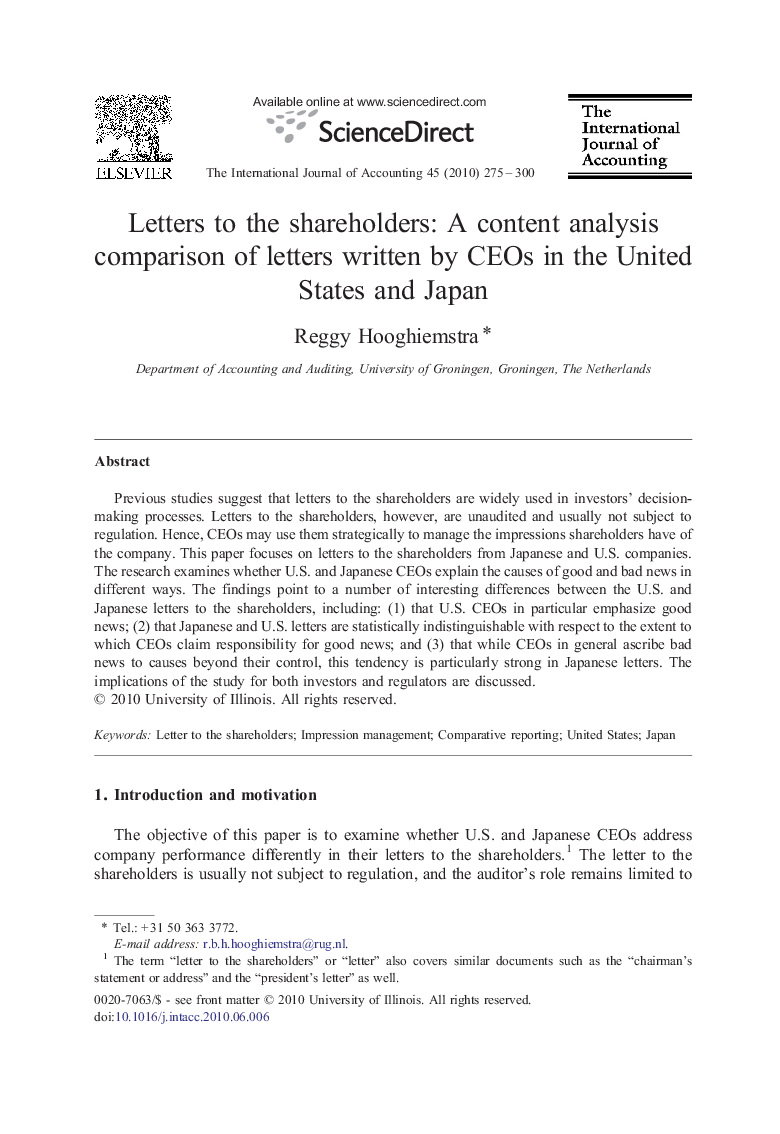| Article ID | Journal | Published Year | Pages | File Type |
|---|---|---|---|---|
| 1005117 | The International Journal of Accounting | 2010 | 26 Pages |
Previous studies suggest that letters to the shareholders are widely used in investors' decision-making processes. Letters to the shareholders, however, are unaudited and usually not subject to regulation. Hence, CEOs may use them strategically to manage the impressions shareholders have of the company. This paper focuses on letters to the shareholders from Japanese and U.S. companies. The research examines whether U.S. and Japanese CEOs explain the causes of good and bad news in different ways. The findings point to a number of interesting differences between the U.S. and Japanese letters to the shareholders, including: (1) that U.S. CEOs in particular emphasize good news; (2) that Japanese and U.S. letters are statistically indistinguishable with respect to the extent to which CEOs claim responsibility for good news; and (3) that while CEOs in general ascribe bad news to causes beyond their control, this tendency is particularly strong in Japanese letters. The implications of the study for both investors and regulators are discussed.
